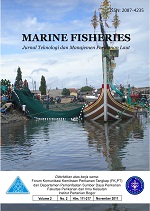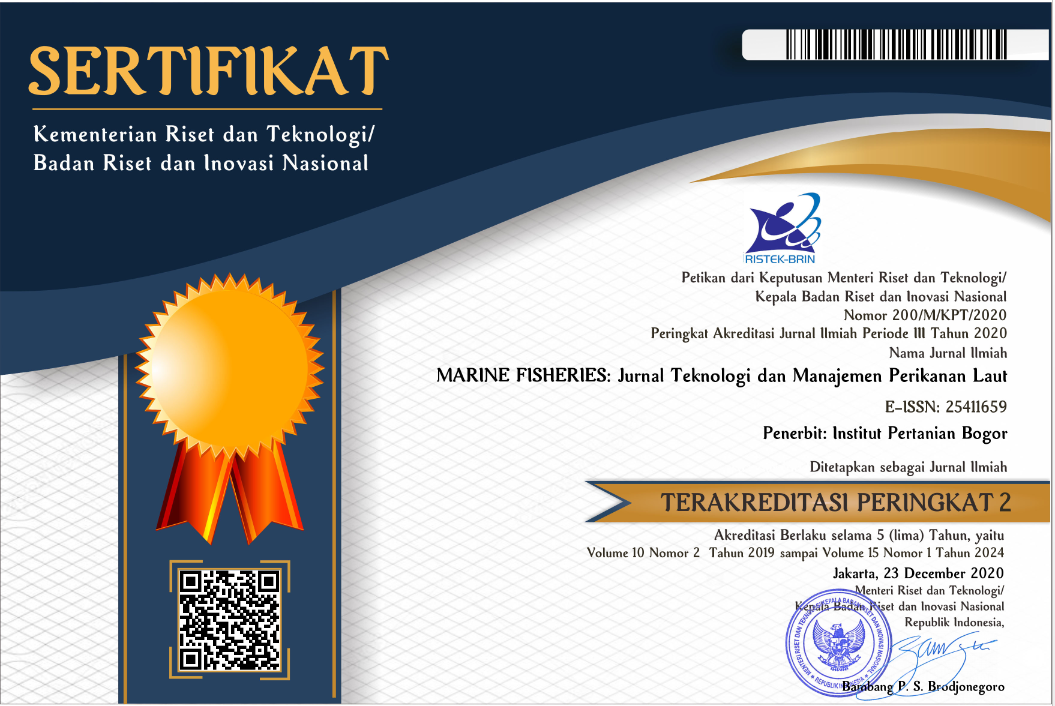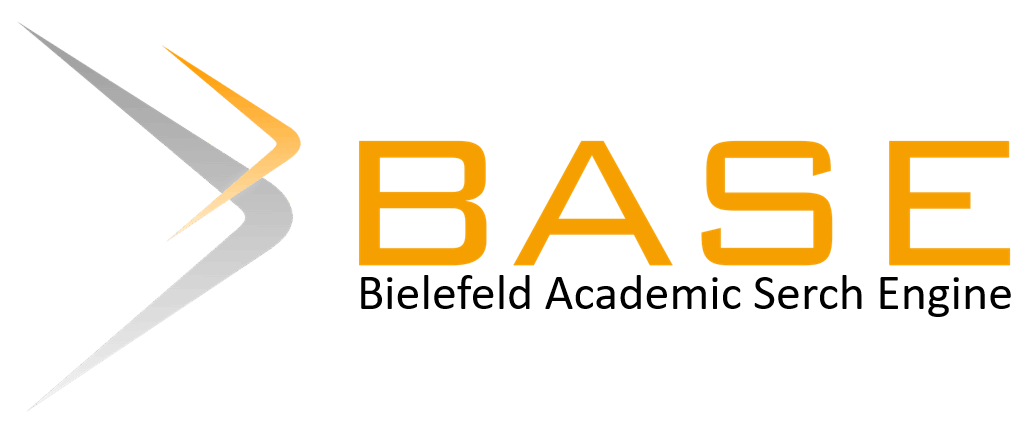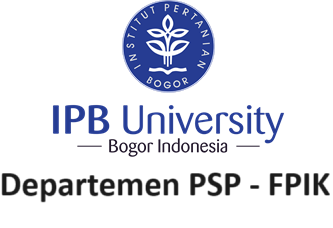KELEMBAGAAN PENGELOLAAN SUMBER DAYA PERIKANAN TANGKAP BERBASIS RESOLUSI KONFLIK DI KALIMANTAN SELATAN (Institutional of Capture Fishery Resources Management Based on Conflict Resolution in South Kalimantan)
Abstract
Management of fishery resources can be hampered by destructive conflict. A fairly long period of conflict, due to the institutional implications of conflict management is not effective, therefore this studyaimed to 1) map the institutional management of fishery resources, 2) reveal on the role of institutional management of fishery resources management, 3) develop a concept institutional management of capture fisheries. This study used a qualitative descriptive approach and was analyzed in narrative. The result showed that the institutions that played role in conflict management consisted of formal, non formal and community institution of traditional societies. Institutions were in a synergy in community based monitoring system of fisheries and marine resources - which consisted of society groups and have a network ranging from district to central government levels. They played a role in making operational policy for supervising and controlling fishery resources, coordinating and harmonizing the programs and activities among institutions, as well as taking actions to follow up the allegations based on the information from society groups.. Conflict resolution can be done effectively with the negotiation and facilitation techniques known as ADR (Alternative Dispute Resolution). Thus, conflict management was conducted cooperatively by prioritizing on acceptable and long term output. . Application of ADR was conducted by involving the whole of law functionaries. Its application was believed could smooth the various institutional functions.
Key words: capture fisheries, conflict, institutions, management, resolution
Downloads
Author(s) who published in this journal agree to following terms:
- Author(s) must understand and agree that the copyright script in published owned by the Marine Fisheries Journal. The copyright includes reproducing and selling the manuscript to all parties.
- Everyone can cite every manuscript published in Marine Fisheries for educational purposes, with the author's name and the Marine Fisheries Journal on reference.










